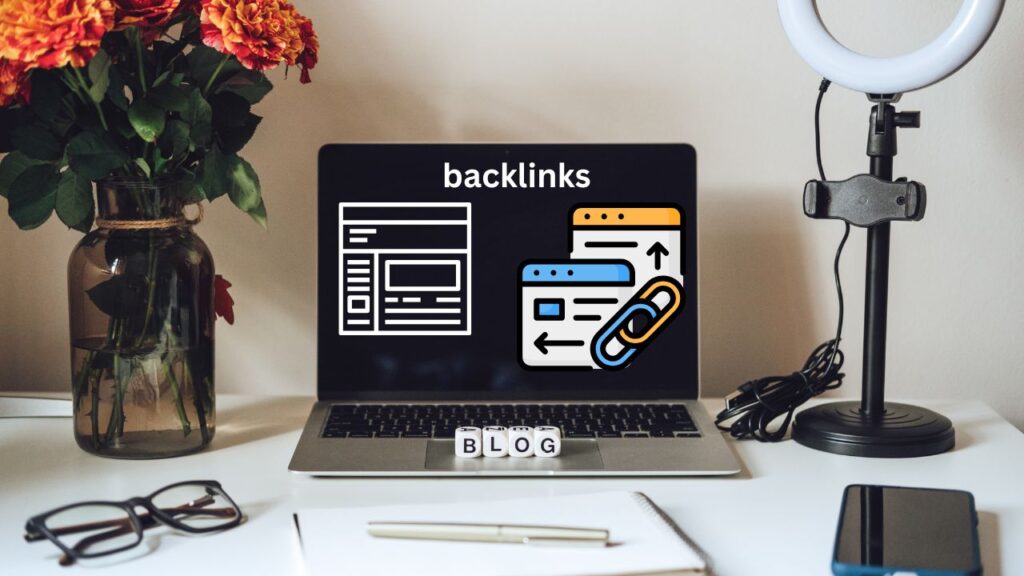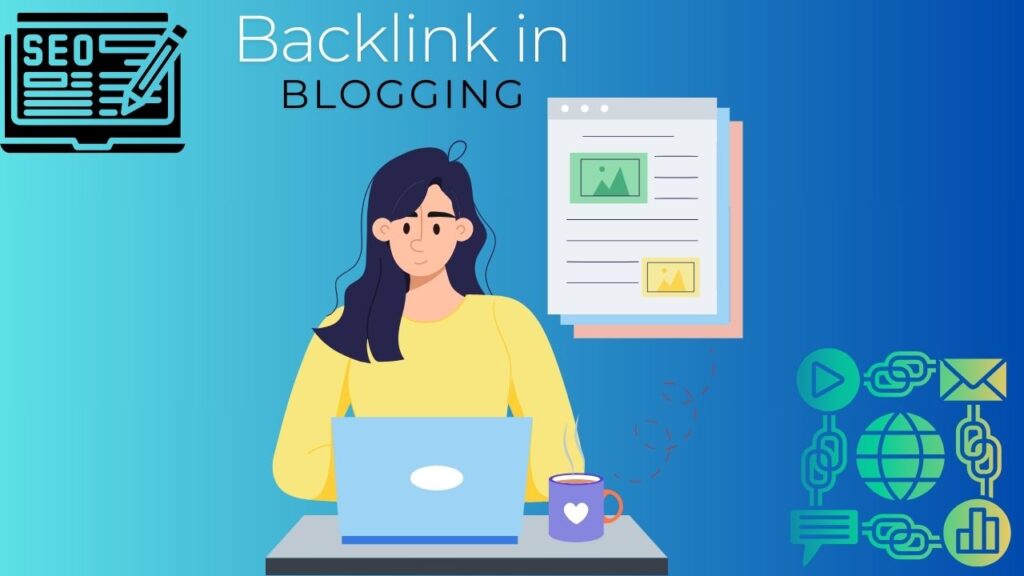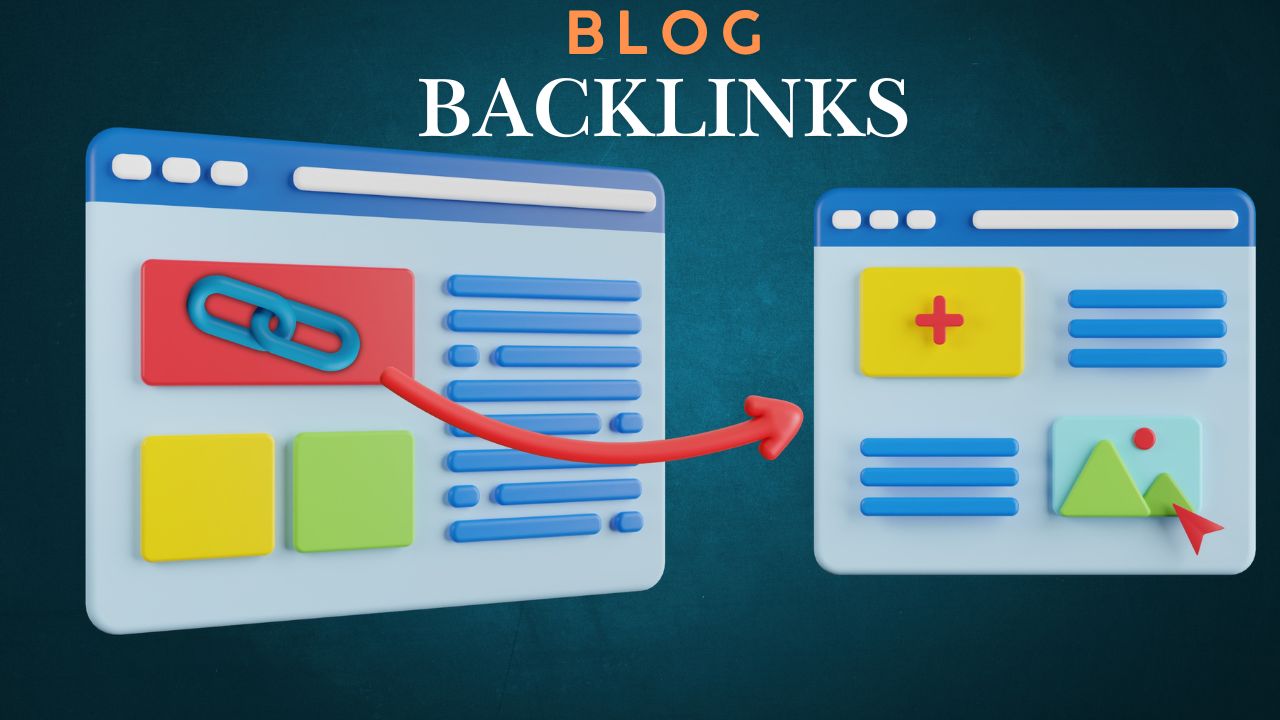Understanding Backlinks: Their Role in Blogging Success
What Is A Backlink In Blogging, Backlinks are essential to your blogging journey. They are links from one website to another and serve as digital endorsements. When another site links to your blog, it signals to search engines that your content is valuable, relevant, and worth visiting. Understanding backlinks can significantly impact your blog’s visibility and success.
So why are backlinks important for bloggers? Here are a few key points:
- Boost Search Engine Ranking: Backlinks are one of the critical factors that search engines use to determine a page’s rank. The more quality backlinks you have, the higher your blog can rank in search results.
- Increase Referral Traffic: When users click on a backlink that directs them to your blog, you benefit from increased traffic. This type of traffic is highly valuable because it often comes from users already interested in your content or niche.
- Build Authority: Quality backlinks can enhance your blog’s authority in your niche. When other credible sites refer their readers to you, it establishes trust not only with those readers but also with search engines.

Many bloggers aim to accumulate backlinks, but it’s crucial to focus on quality rather than quantity. Here’s what you should know:
Types of Backlinks:
| Type of Backlink | Description | Value |
|---|---|---|
| Natural Backlinks | Links given naturally by other blogs or websites when they find your content useful. | High |
| Manual Backlinks | Links you acquire through outreach, asking others to link back to your page. | Moderate |
| Self-Created Backlinks | Links created by yourself through forum signatures, blog comments, etc. | Low |
As you can see, natural backlinks are the most valuable, while self-created backlinks can be less effective. Focusing on getting high-quality backlinks should be your priority.
To gain these backlinks, consider the following strategies:
- Create Valuable Content: Producing unique, informative, and engaging posts makes others want to link back to your blog. Think about what problems you can help solve for your audience.
- Guest Blogging: Writing articles for other websites can expose your work to a new audience. Make sure to include a link back to your blog in your author bio.
- Engage on Social Media: Sharing your posts on social media can lead to increased visibility. The more people see your content, the higher the chances of earning backlinks.
While building backlinks, it’s essential to monitor your progress. You can use various tools to track your backlink profile. Two popular options are:
- Ahrefs: A powerful tool that lets you analyze your backlinks and helps you see how your blog stacks up against competitors.
- SEMrush: Offers insights into your backlink strategy and shows which links are working best for your blog.
What Is A Backlink In Blogging, As you work to improve your backlink profile, beware of bad links. Toxic backlinks can harm your blog’s reputation and rankings. Regularly audit your backlinks to identify any low-quality links pointing to your site. You may need to disavow these links to prevent damage to your site’s authority.
In essence, backlinks hold a significant role in your blogging success. They enhance your visibility, credibility, and authority online. By focusing on quality backlinks and using effective strategies, you can elevate your blog’s performance and reach a wider audience.
Remember, building a robust backlink profile takes time and effort, but the rewards are worth it. Continue creating valuable content, engaging with your audience, and actively seeking opportunities for backlinks, and you’ll see the positive effects on your blog’s growth.
The Impact of Backlink Quality on SEO Performance
What Is A Backlink In Blogging, Backlinks are a critical component of SEO (Search Engine Optimization) that can significantly impact your blog’s performance. They are links from one website to another, indicating endorsement or acknowledgement of content. Quality backlinks can enhance your site’s authority and visibility in search engine results, so understanding their nature and implications is essential for any blogger.
When evaluating the impact of backlinks, it’s essential to focus on their quality rather than quantity. Here are some factors that define quality backlinks:
- Relevance: A backlink from a site within your niche carries more weight than one from an unrelated industry.
- Authority: Links from high-authority websites, such as well-known news outlets or renowned blogs, are more beneficial than those from smaller, less-established sites.
- Trustworthiness: Search engines prioritize links from reputable sites. Sites that may have been penalized or flagged for spam can harm your SEO.
- Placement: Links that are placed within the main text of an article have more impact than those found in footers or sidebars.
- Anchor Text: The clickable text of a link can influence SEO. Using relevant keywords in anchor texts can enhance your linking strategy.
Each of these factors contributes to how effective a backlink can be in boosting your site’s SEO performance. High-quality backlinks can drive relevant traffic, increase your domain authority, and improve visibility in search results.
The Role of Backlink Quality in SEO
The quality of the backlinks you acquire can drastically affect your blog’s search rankings. Here’s how:
- Improved Domain Authority: A strong profile of quality backlinks contributes to higher domain authority, which is crucial for ranking.
- Referral Traffic: Quality backlinks are more likely to bring targeted visitors to your site, increasing the relevance and potential conversions.
- Indexing Speed: Search engines crawl and index your pages faster if they come from quality sites.
- Brand Credibility: Being linked to by credible sources can position your blog as a trustworthy resource, enhancing your brand image.
As you cultivate backlinks, it’s essential to prioritize these aspects, as they can set you apart from competitors who may focus solely on quantity.
Strategies for Acquiring Quality Backlinks
Focusing on high-quality backlinks might feel challenging, but there are effective strategies you can employ:
- Guest Blogging: Write expert pieces for reputable blogs in your niche. This often allows you to include a link back to your blog.
- Creating Valuable Content: High-quality content that serves readers can naturally attract links from other websites.
- Engaging with Influencers: Building relationships with influencers in your niche can lead to opportunities for backlinks.
- Participating in Communities: Engage with online forums and communities, providing insights linked back to relevant articles on your blog.
- Utilizing Social Media: Share your content on social platforms to reach a wider audience and encourage backlinks.
With a combination of these strategies, you can steadily build a robust backlink profile, driving both traffic and improving your SEO performance.
Monitoring Backlink Performance
What Is A Backlink In Blogging, Once you’ve started acquiring backlinks, it’s crucial to monitor their effectiveness. You can use tools such as Google Analytics and various SEO tools to analyze your backlink profile. Here’s what to focus on:
| Metric | Description |
|---|---|
| Domain Authority | Measures the strength and credibility of your site based on backlinks. |
| Traffic Sources | Identifies referral traffic from backlinks to your site. |
| Page Rank | Indicates your page’s ranking in search engine results influenced by backlinks. |
| Anchor Text Diversity | Monitors the variations in anchor texts that link back to your site. |
Fostering a blog filled with quality backlinks can significantly enhance your visibility and authority in your niche. The focus should always be on quality over quantity, so make the effort to cultivate meaningful links. By doing so, you pave the way for your blog to thrive and achieve better SEO performance.
Strategies for Building Effective Backlinks
What Is A Backlink In Blogging, Building effective backlinks is a crucial part of enhancing your blog’s visibility and authority online. Backlinks serve as pathways from one website to another, letting search engines know that your content is valuable and credible. Here are some advanced strategies you can implement to create strong backlinks that improve your blog’s ranking and reach.
1. Create High-Quality Content
The foundation of effective backlink building is high-quality content. When your content is informative, engaging, and useful, it naturally attracts links from others wishing to reference your work. Here are some tips:
- Write in-depth guides that cover topics comprehensively.
- Include original research, case studies, or statistics that others find valuable.
- Use visuals, such as infographics and videos, to create shareable content.

2. Leverage Guest Blogging
Guest blogging is an effective way to earn backlinks while expanding your audience. When you contribute to other blogs, you often get to include links back to your site. Here are steps to effectively use guest blogging:
- Identify reputable blogs: Look for blogs in your niche that accept guest posts.
- Craft a compelling pitch: Personalize your outreach and explain how your content will benefit their audience.
- Provide top-notch content: Ensure your contribution is of the highest quality to strengthen your reputation and encourage more backlinks.
3. Engage in Social Media Promotion
Sharing your blog posts on social media can increase their visibility, leading to more backlinks. Here’s how to maximize your social media strategy:
- Choose the right platforms where your target audience spends their time.
- Utilize engaging visuals and captivating captions to attract interest.
- Interact with users, respond to comments, and encourage shares to widen your content’s reach.
4. Networking with Influencers
Building relationships with influencers in your field can lead to natural backlinking opportunities. Consider the following approaches:
- Engage with influencers on social media by commenting on their posts and sharing their content.
- Collaborate on projects that can benefit both parties, like joint webinars or interviews.
- Ask for a review or mention of your product or blog; this can lead to backlinks when they share their experience.
5. Utilize Online Directories
Submitting your blog to relevant online directories can create valuable backlinks. Consider these tips:
- Research credible directories within your niche.
- Provide accurate information and a compelling description of your blog.
- Keep your submissions updated to maintain visibility and relevance.
6. Conduct Broken Link Building
Broken link building is a method where you find broken links on other websites and offer your content as a replacement. Here’s a strategic approach:
- Use tools like Ahrefs or Check My Links to identify broken links on relevant blogs.
- Contact the site owner, inform them about the broken link, and suggest your content as a replacement.
- Ensure your content is relevant and high quality to increase the chances of being accepted.
7. Monitor Your Backlink Profile
Regularly tracking your backlink profile can help you understand which strategies work best. Use tools like Moz or SEMrush to analyze:
- The quantity and quality of your backlinks.
- Your most valuable referring domains.
- Identifying any toxic backlinks that could harm your blog’s credibility.
8. Create Shareable Resources
Make resources that are easy to share, such as checklists, templates, or tools. This type of content often sees higher sharing rates, leading to more backlinks:
- Design user-friendly templates relevant to your audience.
- Encourage readers to share resources on social media.
- Include share buttons at the top and bottom of your posts.
Employing these strategies consistently can help you build a strong backlink profile, which not only enhances your blog’s authority but also drives more traffic. As your audience grows and your backlinks accumulate, you will notice improvements in your search engine rankings and reach. Embrace these tactics, and watch as your blogging efforts yield significant results.
Common Myths About Backlinks Debunked
Backlinks are often discussed in the blogging community, yet many misconceptions surround them. If you’re diving into the world of blogging, it’s essential to separate fact from fiction regarding backlinks. Let’s debunk some common myths that can mislead bloggers from achieving their SEO goals.
Myth 1: All Backlinks Are Equally Valuable
One of the most significant misconceptions is that every backlink carries the same weight. However, this isn’t true. The value of a backlink depends on several factors:
- Source Authority: Links from reputable and high-authority sites are more beneficial.
- Relevancy: Backlinks from sites related to your niche are more influential.
- Anchor Text: The text used in the link can affect the SEO value.
To maximize your SEO benefits, seek quality backlinks over quantity.
Myth 2: Quantity Over Quality
What Is A Backlink In Blogging, Some bloggers believe that having many backlinks is crucial, regardless of their quality. In reality, it’s far more effective to focus on obtaining high-quality backlinks. Quality links often lead to higher engagement and traffic. A few backlinks from authoritative sites can drive more traffic than numerous links from low-quality sites.
Myth 3: Backlinks Are Only About SEO
While backlinks are vital for SEO, their benefits extend beyond just search rankings. Here are a few reasons why backlinks matter:
- Traffic Referral: Quality backlinks can direct users from other sites to yours.
- Brand Recognition: Being linked by reputable sites can enhance your credibility.
- Networking Opportunities: Backlinks can lead to collaborative opportunities with other bloggers and influencers.
By understanding the multi-faceted benefits of backlinks, you can create a comprehensive strategy for your blog.
Myth 4: Once You Get Backlinks, You’re Set
Another common belief is that once you acquire backlinks, you can kick back and relax. The reality is that backlinking is an ongoing process. Here are some reasons why:
- Content Changes: As trends and topics change, your backlinks may become less relevant.
- Link Decay: Some backlinks can lose their value over time, especially if the linking site loses authority.
- New Competitors: As new blogs enter your niche, you might need new strategies to maintain your position.
Regularly monitor and update your backlink strategy to ensure sustained growth.
Myth 5: You Can Buy Backlinks Safely
Buying backlinks may seem like a quick fix, but it can lead to serious repercussions. Search engines often penalize sites that engage in this practice. Here’s why acquiring backlinks organically is always the better route:
- Risk of Penalty: Buying links can result in a significant drop in your site’s ranking.
- Quality Issues: Purchased backlinks are typically from low-quality sites, which can harm your reputation.
- Lack of Engagement: Backlinks obtained through payment often don’t result in genuine user engagement.
Focus on creating high-quality content that naturally attracts backlinks from interested sites.
Myth 6: Only Dofollow Backlinks Matter
While dofollow backlinks are essential as they pass SEO value, nofollow links can be beneficial too. Here are some advantages of nofollow links:
- Referral Traffic: Nofollow links can still direct users to your site.
- Brand Exposure: They can create visibility among new audiences.
- Building Relationships: Nofollow links often come from engagements with bloggers and influencers.
Both types of backlinks into your strategy can enhance your blog’s overall reach.
What Is A Backlink In Blogging, Debunking these myths about backlinks can help you adopt a more effective approach to blogging. Emphasizing quality over quantity, maintaining relevance, and actively pursuing backlinking opportunities are crucial for both SEO and brand growth. By understanding the truths about backlinks, you’ll be better equipped to improve your blog and elevate your online presence.
Monitoring Your Backlink Profile for Continued Growth
What Is A Backlink In Blogging, Maintaining a strong backlink profile is essential for the growth and visibility of your blog. Backlinks, which are links from other websites pointing to your content, are key indicators of credibility and relevance in the eyes of search engines. Monitoring your backlink profile allows you to track its health, ensuring that your blog ranks well and attracts traffic effectively.
The Importance of Monitoring Your Backlink Profile
Regular monitoring of your backlink profile helps you understand how your SEO strategy is performing. Here are some key reasons why it’s crucial:
- Identifying New Links: New backlinks can signify that your content is gaining traction. They can also help you discover new audiences.
- Spotting Toxic Links: Not all backlinks are beneficial. Some can harm your ranking and credibility. Regular checks can help you identify these harmful links.
- Understanding Competitor Strategies: By observing where your competitors are getting their backlinks, you can adjust your approach to stay competitive.
- Enhancing Content Strategy: Knowing which of your content is attracting backlinks can help you inform future content creation efforts.
Tools for Monitoring Backlinks
There are several tools available that provide in-depth analysis of your backlink profile. Here are a few popular options:
- Ahrefs: Offers a comprehensive overview of your backlink profile, including new and lost links.
- SEMrush: This tool allows you to monitor your backlinks and those of your competitors to identify potential linking opportunities.
- Moz Link Explorer: A user-friendly option that provides data on your domain authority and backlinks.
- Google Search Console: Free and reliable, this tool shows you the sites linking to you and alerts you to any issues.
Key Metrics to Monitor
While monitoring your backlink profile, focus on several critical metrics:
| Metric | Description |
|---|---|
| Domain Authority (DA) | A score that predicts how well a website will rank on search engine results. |
| Page Authority (PA) | Predicts how well a specific page will rank. |
| Referring Domains | The number of unique domains linking to your content. |
| Backlink Quantity | The total number of backlinks pointing to your site. |
| Anchor Text | The visible text in a hyperlink that often indicates the content of the linked page. |
Strategies for Growth
Once you’ve established a system for monitoring your backlinks, consider incorporating the following strategies for continued growth:
- Quality Over Quantity: Aim for high-quality backlinks from reputable sites rather than accumulating a large number of low-quality links.
- Content Outreach: Regularly reach out to influencers and bloggers in your niche to share your content and potential collaboration opportunities.
- Guest Blogging: Create valuable content for other blogs. This can naturally lead to backlinks while showcasing your expertise.
- Broken Link Building: Find broken links on related websites and offer your content as a replacement. It’s a win-win for you and the website owner.
Managing and Disavowing Toxic Links
What Is A Backlink In Blogging even with careful monitoring, toxic links can creep into your backlink profile. These links can come from spammy sites or irrelevant content that could harm your rankings.
If you identify harmful backlinks, take these steps:
- Identify Toxic Links: Use tools like Ahrefs or SEMrush to analyze your backlinks and find those that are low-quality.
- Reach Out: Contact the webmasters of the linking sites to request a removal of the link.
- Disavow Links: If attempts to remove links fail, use Google’s Disavow Tool to tell Google to ignore the toxic links.
By actively monitoring your backlink profile and using the appropriate tools and strategies, you can foster continued growth for your blog. Keeping a close eye on your backlinks enhances your online authority, improves your search rankings, and drives more traffic to your site.

Key Takeaway:
What Is A Backlink In Blogging, Backlinks play a crucial role in the success of your blogging efforts, acting as a vote of confidence from one site to another. Understanding how backlinks function is fundamental to elevating your blog’s visibility and authority in search engine rankings. When high-quality websites link to your content, it signals to search engines that your blog is credible and valuable. This trust can lead to improved search engine optimization (SEO) performance, making it essential to focus on building quality backlinks rather than just quantity.
One of the key factors affecting SEO performance is the quality of the backlinks you acquire. Not all links are created equal; links from authoritative and relevant sites carry more weight than those from less credible sources. It’s important to assess every potential backlink opportunity by considering the linking site’s authority, relevance to your niche, and trustworthiness. This way, you can ensure that each new backlink strengthens your blog’s position in the digital landscape.
When it comes to building effective backlinks, there are several strategies you can employ. Guest blogging, creating shareable infographics, and reaching out for collaborations can help you garner valuable links. These methods not only enhance your backlink profile but also build relationships within your niche. The process requires patience and consistent effort, but the rewards are impressive when done correctly.
Despite the importance of backlinks, there are many myths surrounding them that can lead to misunderstanding. Some bloggers believe that acquiring a high number of backlinks blindly is effective, which is far from the truth. Quality over quantity is vital in this regard. Additionally, some even think that buying backlinks will yield immediate results, but this approach can harm your site’s reputation and rankings.
Monitoring your backlink profile is essential for continued growth. Keeping track of which sites are linking to you, analyzing their quality, and addressing any negative backlinks can strengthen your blog’s SEO strategy. Regular audits can highlight new opportunities for improvement while ensuring your existing backlinks remain valuable.
Understanding and leveraging backlinks effectively can significantly impact the success of your blog. Focus on quality, strategize your link-building efforts, debunk the myths that surround backlinks, and continually monitor your progress to carve out a place for your blog in the competitive world of online content.
The 10 Best Things About Do Blog Posts Increase SEO – Learn the secrets here !!!
Conclusion
Backlinks play a pivotal role in the success of your blogging efforts. They serve as a bridge, connecting your content to other authoritative websites and boosting your site’s credibility in search engines. Understanding the significance of backlink quality cannot be overstated; high-quality backlinks can enhance your SEO performance significantly, leading to improved visibility and increased traffic.
Implementing effective strategies for building backlinks is essential for gaining traction in the digital landscape. Whether it’s guest posting, creating shareable content, or forging partnerships with other bloggers, each method can yield valuable connections that enhance your blog’s authority.
What Is A Backlink In Blogging, It’s also crucial to dispel common myths surrounding backlinks. Many believe that quantity trumps quality, but this is a misconception. Prioritizing meaningful links from reputable sites over a high number of low-quality ones is the key to long-term SEO success.
Just as you work on building backlinks, monitoring your backlink profile is a continuous process that helps ensure ongoing growth. Using tools to regularly check your backlinks allows you to identify opportunities and spot any potentially harmful links that could hinder your progress.
Embracing the dynamics of backlinks will not only enhance your blog’s SEO performance but also foster genuine connections within your niche. By focusing on quality, employing strategic tactics, and staying vigilant about your backlink profile, you can set the foundation for sustainable blogging success.
FAQ
What is backlinks in blogging
“Backlinks in blogging are like votes of confidence from other websites. When another website links to your blog post, it signals to search engines that your content is valuable and trustworthy. This not only boosts your search engine rankings but also increases your website’s authority and credibility, attracting more organic traffic.
How do I create backlinks
Creating high-quality backlinks involves building relationships with other websites in your industry. This can be achieved through guest blogging on reputable platforms, creating valuable content that other websites want to link to, and participating in online communities and forums where you can naturally mention your website.
How to get free backlinks
Building high-quality, valuable content that naturally attracts backlinks is key. Engage in online communities, participate in relevant forums, and contribute to guest blogging on other reputable websites. Leverage social media to share your content and build relationships with other bloggers and influencers, increasing the chances of earning natural backlinks.
Does Google use backlinks
Yes, Google heavily relies on backlinks when ranking websites. Backlinks, which are links from other websites to yours, signal to Google that your website is trustworthy and authoritative. The more high-quality backlinks your website has, the higher it will likely rank in search engine results pages (SERPs).
Do backlinks make money
While backlinks themselves don’t directly generate revenue, they play a crucial role in improving your website’s search engine ranking. Higher rankings lead to increased organic traffic, which can significantly boost your chances of monetizing your website through advertising, affiliate marketing, or selling products or services.

